In the first days of the year, going to some satellite clinics in Ho Chi Minh City, it was heartbreaking to see some places with closed doors and some places with only a few people coming for medical examination and treatment.
70% reduction in visits
On the morning of January 11, at the Thao Dien Satellite Clinic (PKĐKVT), under Le Van Thinh Hospital, Thu Duc City, we recorded nearly 10 people coming for medical examination and treatment. Doctor CKII Nguyen Quoc Cuong, in charge of the clinic, said that the unit has been operating for 5 years, with specialties in Internal Medicine, Pediatrics, Dentistry, Traditional Medicine, Physical Therapy, Diagnostic Imaging and Testing. Of which, the Internal Medicine specialty has the most patients coming for examination, mainly chronic diseases such as diabetes, blood pressure, cardiovascular disease, bronchial asthma... On average, the clinic receives 80-150 people/day, at peak times 200-220 people/day. However, the number of people coming for medical examination and treatment has decreased by 40%-50%.
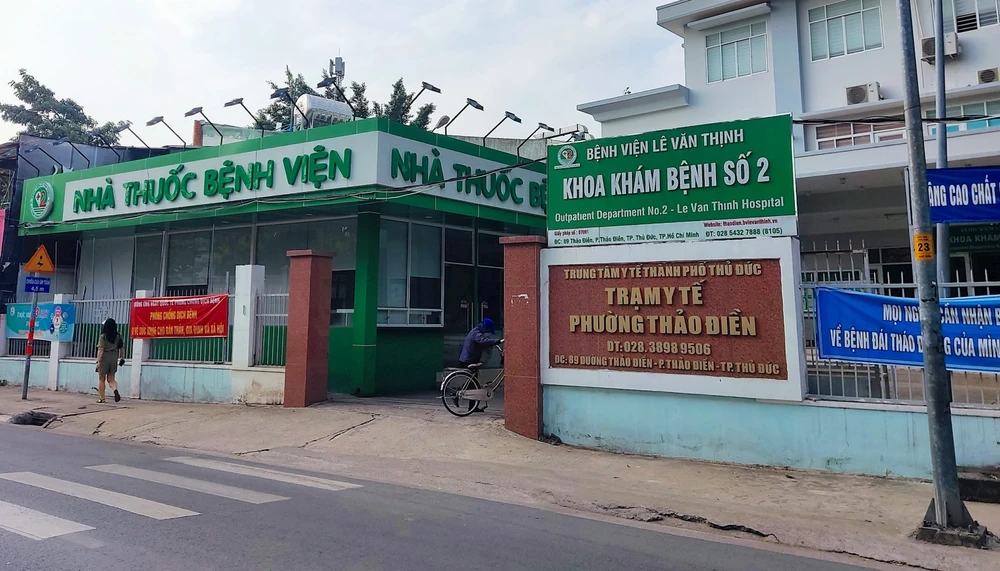
“The decline is partly due to changes in the Health Insurance Law (HI) regulations on cross-border medical examination and treatment. Currently, people with health insurance must go to higher-level hospitals to enjoy the health insurance regime,” Dr. Nguyen Quoc Cuong shared. For example, people with health insurance cards who initially register for medical examination and treatment at provincial-level facilities in Ho Chi Minh City such as Gia Dinh People's Hospital, Thong Nhat Hospital, etc. will not be able to receive health insurance examination and treatment at the right-level clinics. If they want to receive health insurance examination and treatment at the right-level clinics, they must have a referral letter from these hospitals to the clinic.
Similarly, Thu Duc City Hospital currently has 3 general clinics including: Binh Chieu (20 doctors); Linh Xuan (60 doctors); Linh Tay (38 doctors). Previously, each clinic received 50-500 people/day, now it has decreased by 50%-70%. After the Covid-19 pandemic, the number of visits to Linh Trung 1 and Hiep Binh Chanh general clinics of the hospital decreased the most among the clinics, so they had to close because their revenue was not enough to cover expenses, handing over the premises to Thu Duc City Medical Center and ward health stations for management.
“Hiep Binh Chanh Ward Health Station has an area of over 2,000 square meters , invested in synchronous facilities, combined with Thu Duc City Hospital placing a general clinic at the station, helping the locality to conveniently take care of the primary health of 110,000 people, especially the elderly who do not have to travel far to examine and treat chronic non-communicable diseases,” said Dr. Nguyen Gia Phuong, Head of Hiep Binh Chanh Ward Health Station. With no more clinic, now Hiep Binh Chanh Ward Health Station only has 5-10 visits per day. 6,000/8,100 local elderly people with chronic non-communicable diseases have a hard time traveling to see a doctor at a higher level.
Focus on strengthening primary health care
Five years ago, Ho Chi Minh City implemented the model of Vocational Clinics with the aim of reducing the burden on upper-level hospitals, helping patients receive the best health care right at the grassroots health care level. At the same time, it solved the need for medical examination and treatment for people in places far from the city center, densely populated areas but lacking public medical examination and treatment facilities such as Cu Chi, Can Gio, Binh Chanh, Hoc Mon districts and Thu Duc City. Clinics opened at health stations also help people access general medical examination and treatment services conveniently and quickly. In difficult cases, clinics can consult online with upper-level hospitals to handle situations and provide timely treatment during the "golden hour" for critically ill patients... However, Ho Chi Minh City currently has only 6/9 Vocational Clinics in operation, many of which, although still operating, face difficulties in terms of cost burden, human resources, especially the Law on Health Insurance... causing the number of people coming for medical examination and treatment to decrease sharply, with a high risk of closure.
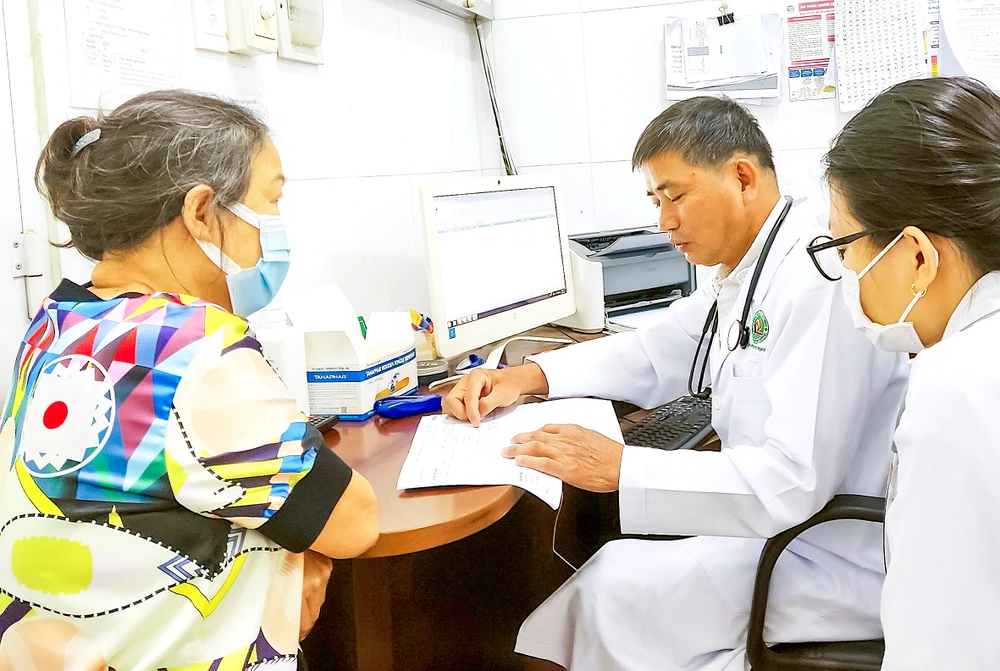
Recognizing these difficulties and shortcomings, the Ho Chi Minh City Department of Health has proposed many fundamental solutions, focusing on strengthening grassroots health care so that all health stations have the capacity to provide initial examinations. "The sector has been and is continuing to increase human resources and material resources for hospitals to deploy more PKKDKVT models in wards and densely populated areas - where people really need clinics. Not only district hospitals but also the city's end-of-line hospitals can participate in this model," Dr. Nguyen Van Vinh Chau, Deputy Director of the Ho Chi Minh City Department of Health, informed.
Wishing to "reactivate" closed medical clinics and develop operating clinics, Dr. Vu Tri Thanh, Director of Thu Duc City Hospital, proposed that the Ministry of Health quickly resolve the issue of "connecting the lines". Accordingly, patients who come to medical clinics for examination and treatment are entitled to health insurance in the right line when their health insurance card has the place of initial medical examination registration as a facility in the city from the district level down. At the same time, Circular 20/2022/TT-BYT (promulgating the list and rates, payment conditions for pharmaceutical drugs, biological products, radioactive drugs and markers within the scope of benefits of health insurance participants) is adjusted to facilitate health insurance participants when examining and treating at medical clinics to be prescribed drugs in the list corresponding to level I and II hospitals.
“The income of medical staff, especially general practitioners with a lot of experience at the PKKV, is very low, because they only have basic salaries, and there are not many examinations because the revenue from the clinic is not enough. The city needs to have a preferential treatment and salary support regime to retain this team of doctors, only then can the PKKV develop and expand to other locations,” Dr. Vu Tri Thanh proposed.
Leaders of some hospitals such as Le Van Thinh, Binh Chanh, Tan Phu... (currently implementing the model of general medical examination and treatment in the area) have the same wish: The city applies a special mechanism according to Resolution 98/2023/QH15 of the National Assembly on piloting a number of special mechanisms and policies for the development of Ho Chi Minh City to invest in equipment and machinery; has a separate development mechanism for general medical examination and treatment under the hospital; the approved list of drugs is expanded. In densely populated areas, the physical facilities of medical stations do not meet the needs of opening general medical examination and treatment, the city considers allocating land for hospitals to invest in infrastructure, without having to rent land to open general medical examination and treatment.
QUANG HUY
Source


![[Photo] General Secretary To Lam attends the ceremony to celebrate the 80th anniversary of the post and telecommunications sector and the 66th anniversary of the science and technology sector.](https://vphoto.vietnam.vn/thumb/1200x675/vietnam/resource/IMAGE/2025/9/29/8e86b39b8fe44121a2b14a031f4cef46)

![[Photo] Solemn opening of the 12th Military Party Congress for the 2025-2030 term](https://vphoto.vietnam.vn/thumb/1200x675/vietnam/resource/IMAGE/2025/9/30/2cd383b3130d41a1a4b5ace0d5eb989d)
![[Photo] General Secretary To Lam, Secretary of the Central Military Commission attends the 12th Party Congress of the Army](https://vphoto.vietnam.vn/thumb/1200x675/vietnam/resource/IMAGE/2025/9/30/9b63aaa37ddb472ead84e3870a8ae825)
![[Photo] General Secretary To Lam receives US Ambassador to Vietnam Marc Knapper](https://vphoto.vietnam.vn/thumb/1200x675/vietnam/resource/IMAGE/2025/9/29/c8fd0761aa184da7814aee57d87c49b3)



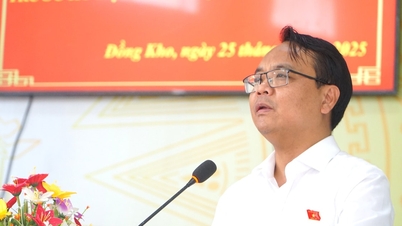

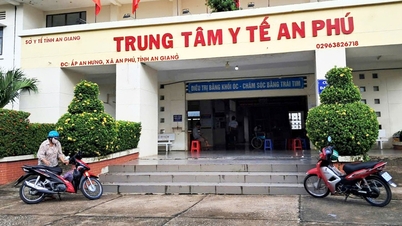

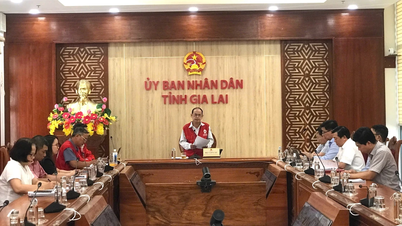


















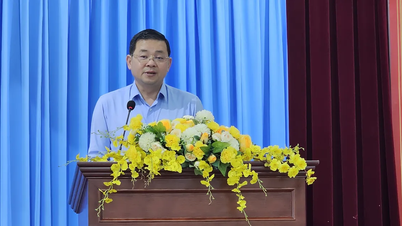
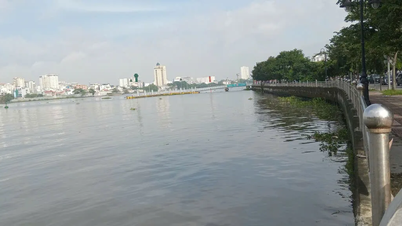


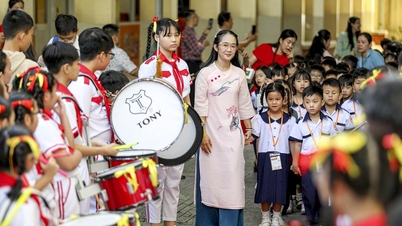
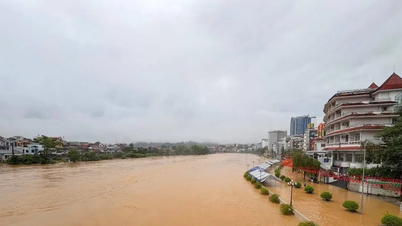
![[Photo] National Assembly Chairman Tran Thanh Man chairs the 8th Conference of full-time National Assembly deputies](https://vphoto.vietnam.vn/thumb/1200x675/vietnam/resource/IMAGE/2025/9/29/2c21459bc38d44ffaacd679ab9a0477c)
![[Photo] Many streets in Hanoi were flooded due to the effects of storm Bualoi](https://vphoto.vietnam.vn/thumb/1200x675/vietnam/resource/IMAGE/2025/9/29/18b658aa0fa2495c927ade4bbe0096df)




































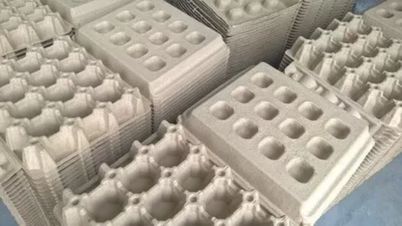
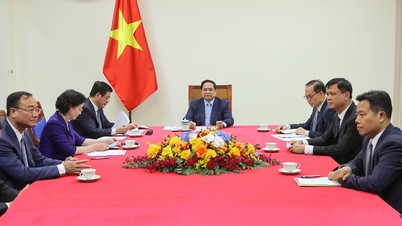


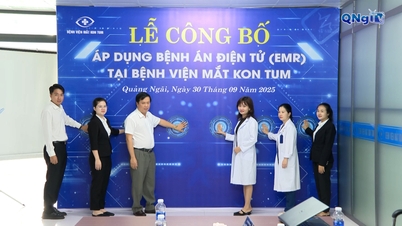


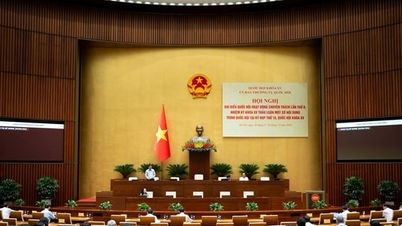

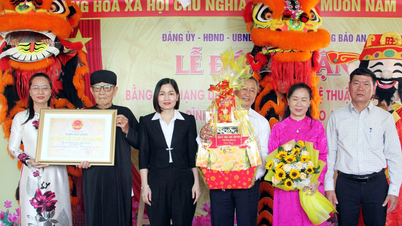

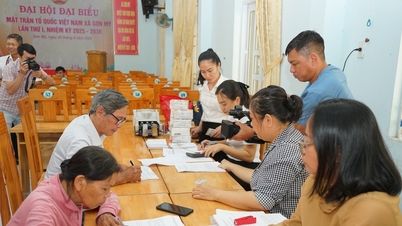














Comment (0)